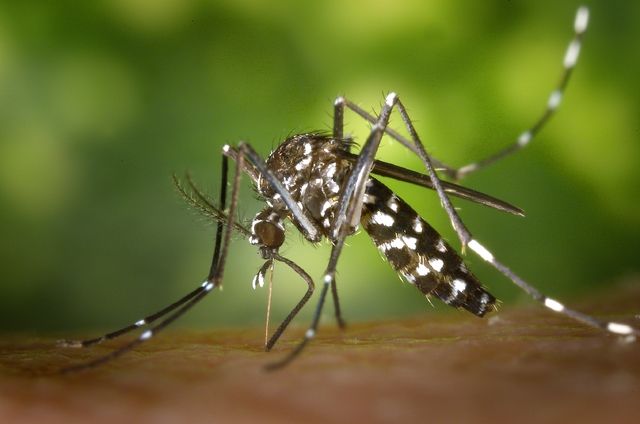Mexican health authorities approved the first vaccine to gain official acceptance for use against the dengue virus, which sickens about 100 million people every year, mostly in Asia, Africa and Latin America. The federal medical safety agency said Wednesday the
Mexican health authorities approved the first vaccine to gain official acceptance for use against the dengue virus, which sickens about 100 million people every year, mostly in Asia, Africa and Latin America.
The federal medical safety agency said Wednesday the vaccine has undergone testing on over 29,000 patients worldwide. It said the vaccine’s manufacturer had proved its safety and effectiveness, but did not name the drug.
In a separate statement, the Lyon, France-based Sanofi Pasteur identified the vaccine as Dengvaxia.
Mexico said the vaccine is aimed at people ages 9 to 45 and will be used in areas where the disease is endemic.
According to a World Health Organization report published in late 2014, the vaccine had an average rate of effectiveness of about 60.8 percent in protecting against the four strains of dengue currently circulating. Sanofi said its vaccine was shown to” reduce dengue due to all four serotypes (strains) in two-thirds of the participants,” a figure similar to the 65.6 percent rate reported in a study published in September by the New England Journal of Medicine.
That is relatively low for a vaccine. Common vaccines like those for measles and polio are more than 95 percent effective.
But Dengvaxia appeared to be particularly effective in protecting people from the most extreme, potentially life-threatening form of the disease, known as dengue hemorrhagic fever, which can cause internal bleeding, shock, organ failure and death. That form of the disease seems to hit people who have already had one strain of dengue, and then suffer a subsequent infection by a different strain.
Because of that, Mexico said it planned to apply the vaccine in areas were exposure rates to at least one strain were 60 percent or more.
Meanwhile, the number of cases in Hawaii’s outbreak rose again Wednesday. Six more cases were reported bringing the number of infected to 145, with 128 of them Big Island residents and 17 visitors. Thirty-two cases are children, and 113 are adults.
Researchers with the Centers for Disease Control and Prevention are currently trapping mosquitoes and trying to gain a better understanding of where the infectious insects are concentrated. New cases continue to occur in the hotspot from Keauhou to south of Hookena and have begun to crop up in South Hilo and Puna.
The state Department of Health has also ruled out 477 potential cases since the outbreak was discovered in late October.
Other companies are developing alternative approaches to frustrate the virus while a handful of vaccine candidates remain under evaluation in clinical trial.
Recently, Honolulu-based Hawaii Biotech Inc. was awarded funding by the U.S. Army for the first phase of developing a dengue vaccine. The research contract is aimed at developing a more protective and faster-working vaccine for military personnel than other vaccine candidates that are currently in clinical trials. There are three phases, with the clinical trials being the last, before a company can seek regulatory approval.
Dr. In-Kyu Yoon, director of the international Dengue Vaccine Initiative, said the drug “may potentially have a significant public health impact,” but noted “we still don’t know how much Sanofi will charge.”
“It probably will work best in those regions and countries that have the highest rate” of dengue exposure, Yoon said.
Sanofi said in its statement that the drug “prevented 9 out of 10 cases of severe dengue and 8 out 10 hospitalizations due to dengue.”
WHO’s report said it was unclear how long the vaccine would protect those who receive it.
Mosquitoes transmit the dengue virus. Symptoms include high fevers and severe muscle and joint pain. There’s no specific treatment for dengue.


